Black, British & Outdoorsy
Photo courtesy of Michael Fordham
I write this as a black man born and raised in London, England with a love of the outdoors. This love is sadly not shared by many from my community and I often find myself alone on the trails or with friends who are unable to relate to my lived experience as a man of colour.
When I first visited America as a teenage mentor for disadvantaged kids, it took a week and a half to convince the cagey, yet inquisitive, Boston youth that yes, England does indeed have a black community. In fact for the UK as a whole, current estimates suggest that just shy of 4 million people identify as being of African or Caribbean origin. You can add another half million for those who classify themselves as having a ‘mixed’ or dual heritage. The Asian community is even larger.
“In order to find meaning in our lives we built cultures around a concrete and steel environment”
Photo courtesy of Simon Bisset
Collectively, we make up a sizable population and, like in the States, have contributed to making the country—and especially the cities, some of the best and most culturally diverse in the world. Unfortunately, this is as far as we get—the cities I mean. We have yet to make it past the gates in any meaningful way.
The barriers are nothing as obvious as the kind that existed in the Jim Crow South in the U.S., but there might as well be. One of the major differences between being black in the UK and being black in America is that we paid to come here. Many of our parents and grandparents immigrated to the UK from former British territories in the Caribbean following the Second World War. They were asked, as fellow British citizens, to help rebuild the war-torn country. Yet, their arrival was greeted with distrust and animosity. They were treated as if they were in some way inferior.
Why was this surprising? It actually wasn’t. Although Britain was one of the first Western European countries to ban slavery, it also created much of its wealth and Empire off the back of the Atlantic Triangle trade routes (trans-Atlantic slave trade). The last faint echoes of the crumbled empire are present to this day in a system that still feels that in some way black people should be thankful—for what I’m not sure, but thankful none the less.
Although segregation wasn’t written into British law, discrimination was commonplace. The practice of redlining forced Caribbean immigrants into sub-standard inner-city accommodation. The well paid work they were promised never materialized. Wages tended to be low and the political climate of the day was such that visits outside of the city were few and far between. In order to find meaning in our lives we built cultures around a concrete and steel environment, with sporting pursuits generally limited to soccer and track and field or activities that allow us equal safety in numbers close to our home.
As knowledge of the outdoors tends to be handed down generationally, this broken chain has denied today’s black youth the tools they need to be able to tackle the outdoors with any degree of confidence. With next to no representation in media or by brands, we have effectively become an urbanised people. Our communities have lost the understanding of what it means to be connected to nature. We don’t miss it as we no longer understand what it is that we are missing.
A recent study by Natural England, the government’s adviser to the natural environment, claims that visits to outside natural spaces for 68% of BAME (Black Asian and Minority Ethnic) take place within a two mile radius of their home, 50% within just a mile, and this is generally to an urban park.
Photo courtesy of Al Sadler
In the UK, we like to think we are culturally superior to our American cousins, after all we have castles older than your country, a healthcare system that means if you are sick you’ll get fixed up free of charge and to top it all, a month of paid leave every year to do with as you please. When it comes to understanding the mental, social and physical benefits of embracing nature and the outdoor however, we are way behind the curve. This is a bizarre position to be in as we have a stunning countryside with zero animals that are likely to kill you and the coast is never more than 70 miles away—not to mention our proximity to mainland Europe on our doorstep—you can literally swim there if you so desire!
Recent events in America have reverberated across the globe and left everyone questioning what it means to be part of the black diaspora. It’s made me question our rights to explore the lands we call home, be that to ride a bike, climb a crag or simply to just be.
For the British black and brown community to begin to explore our beautiful rural areas we need to take a leaf out of your book. We need to pressure governing bodies and organisations and offer platforms of support to grassroots movements and athletes. More importantly we need to find the courage in ourselves to re-educate our community on the joys and wonder that the outdoor offers, and be willing to take those first steps out of the city.





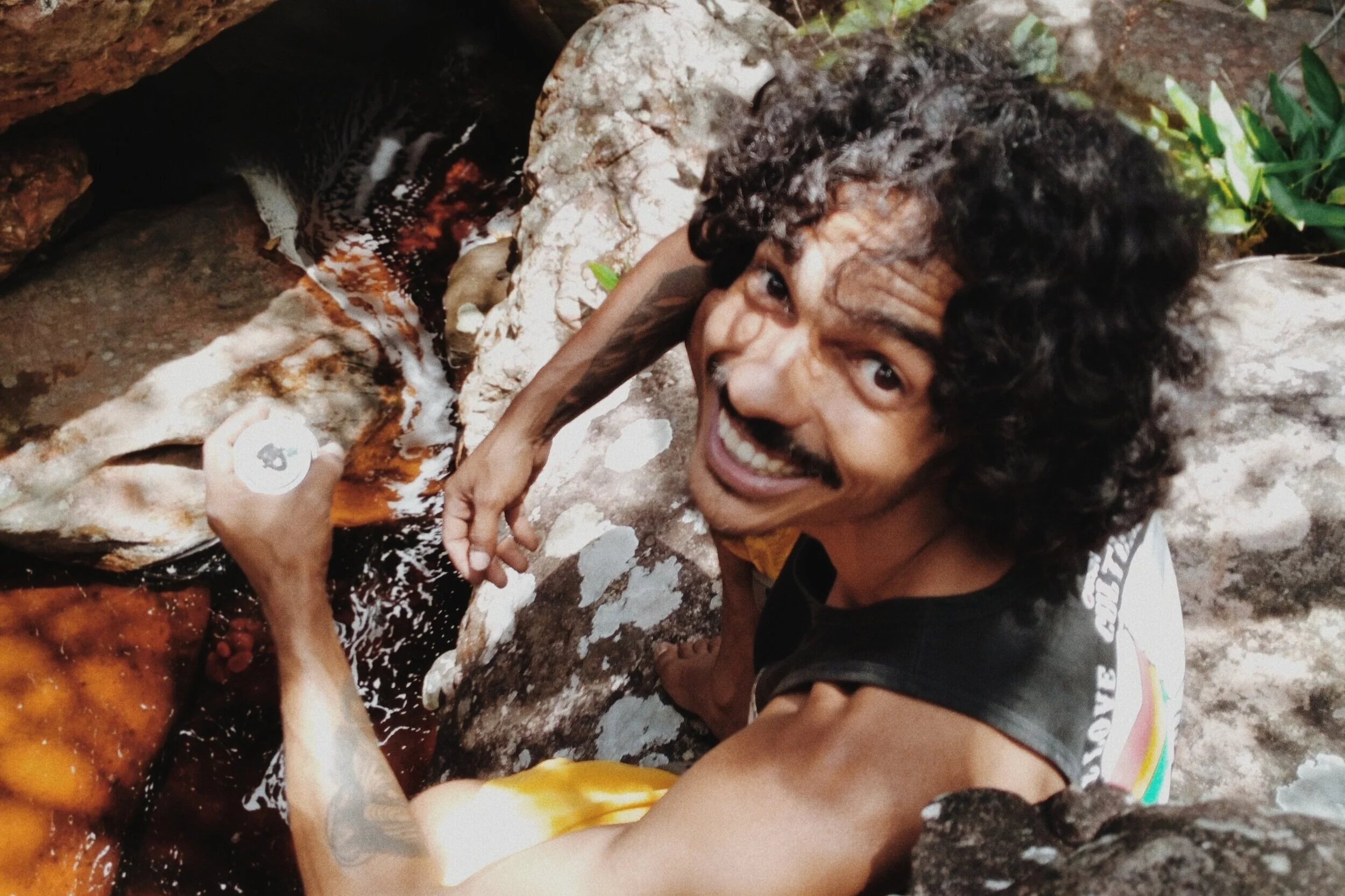





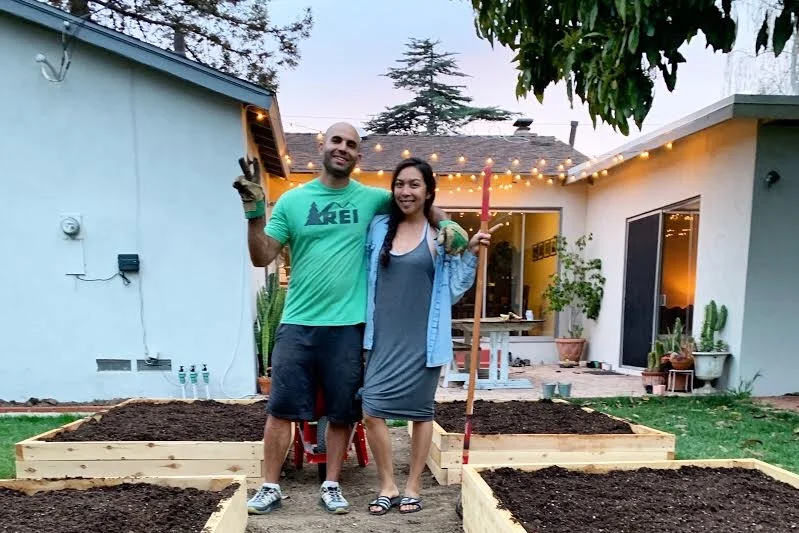

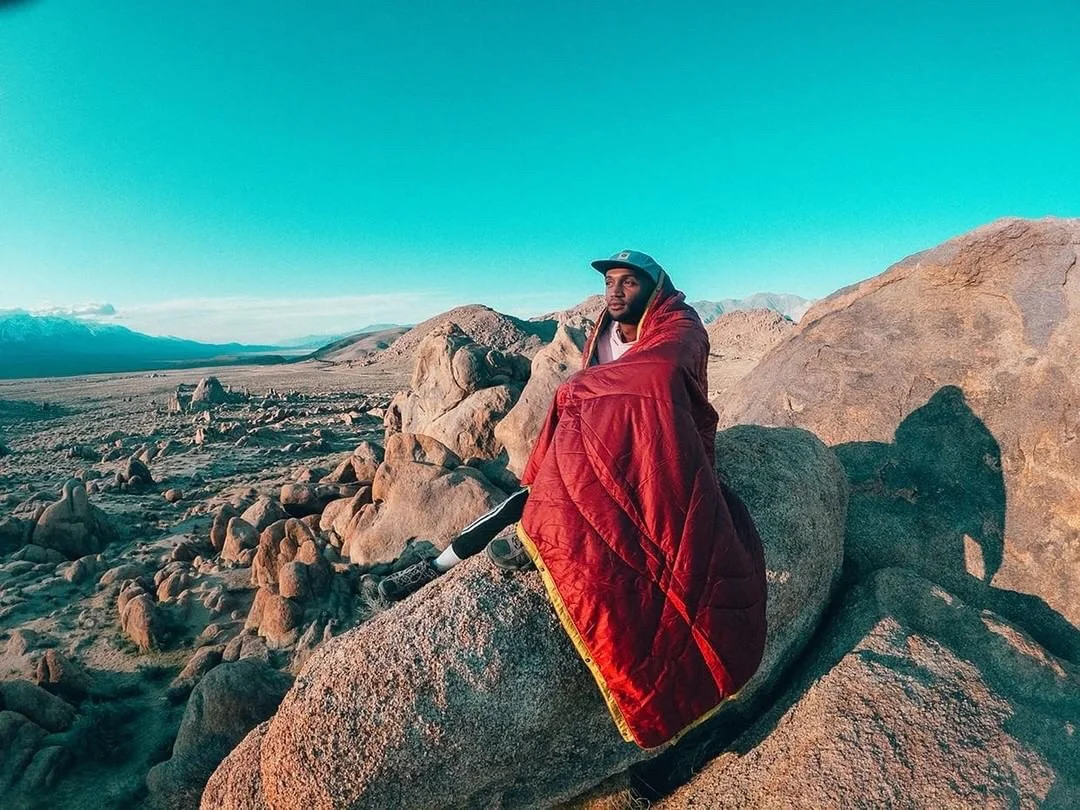



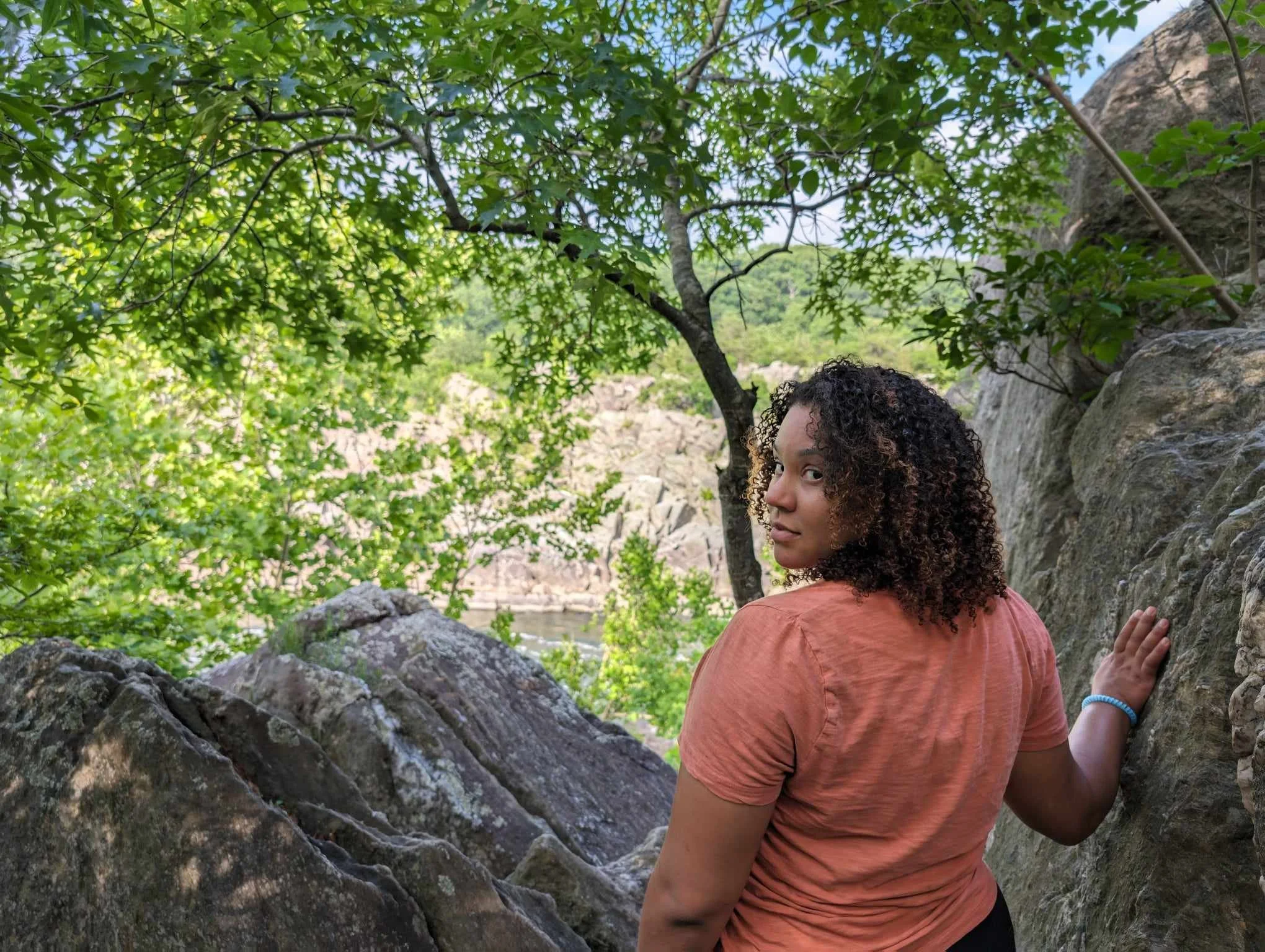

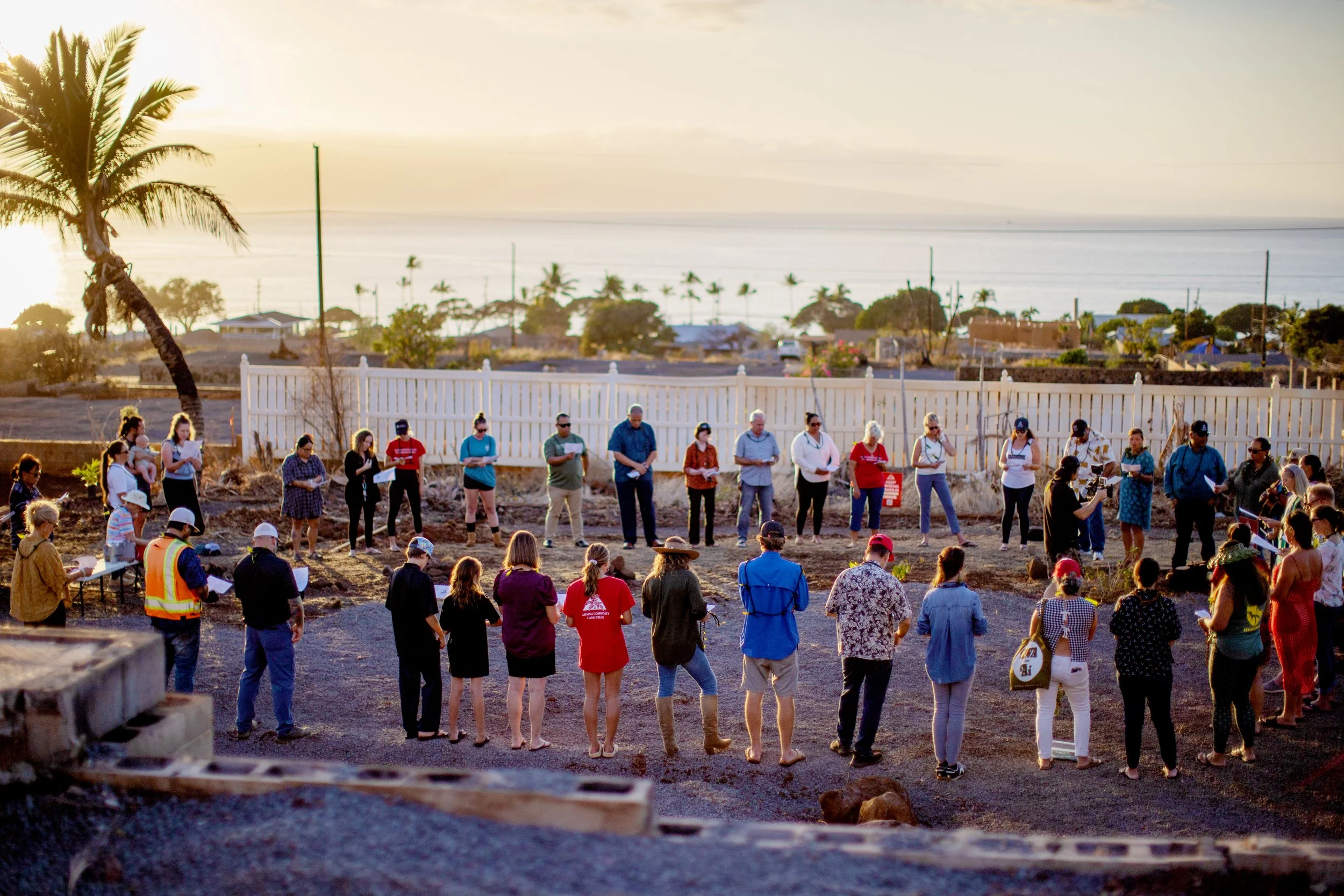


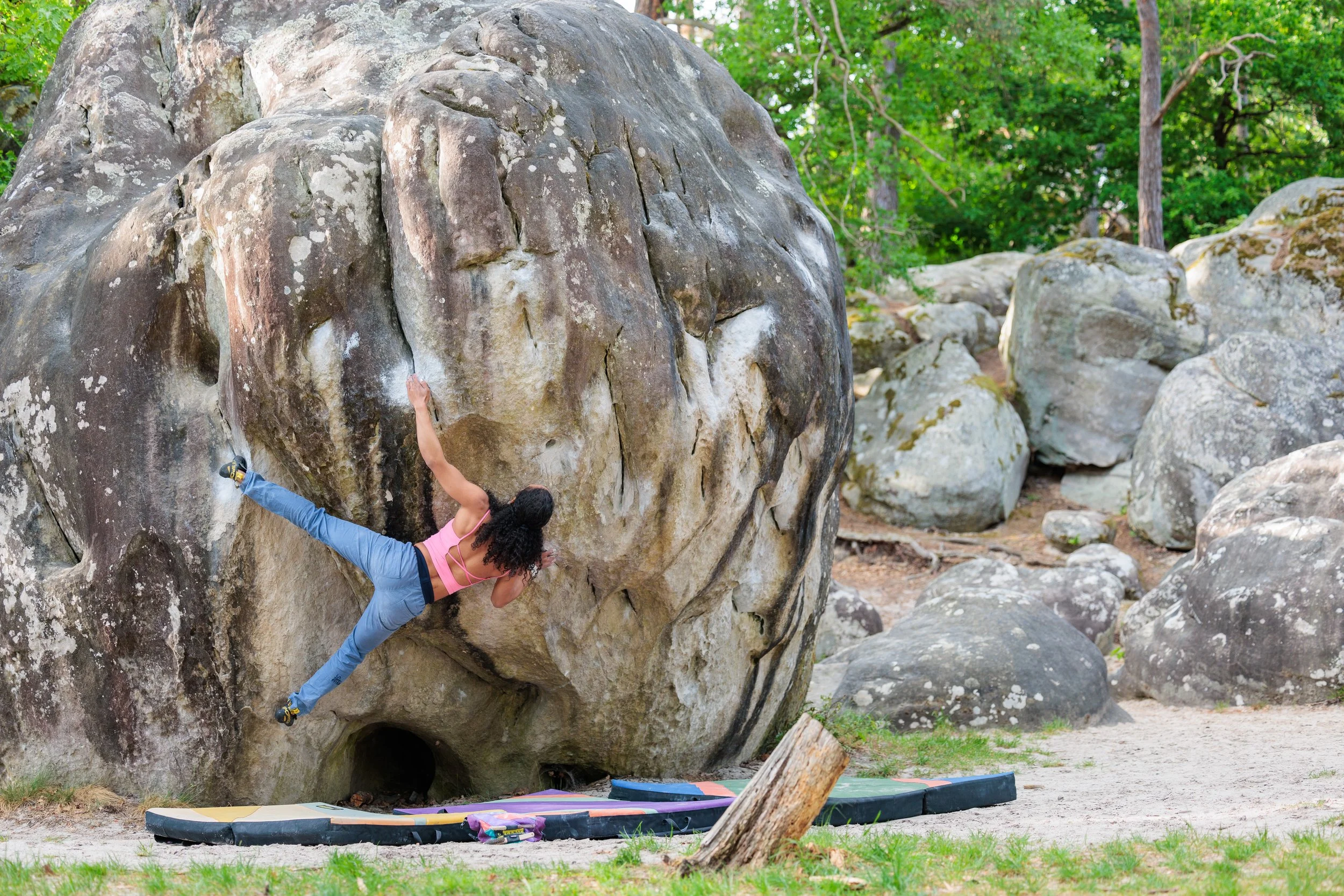




As knowledge of the outdoors tends to be handed down generationally, this broken chain has denied today’s black youth the tools they need to be able to tackle the outdoors with any degree of confidence […] we have effectively become an urbanised people.